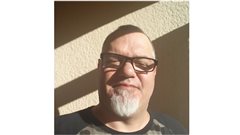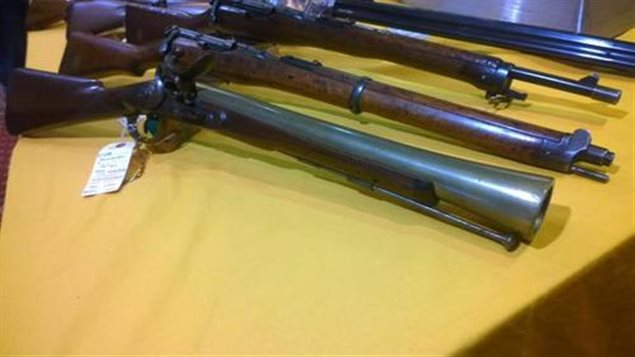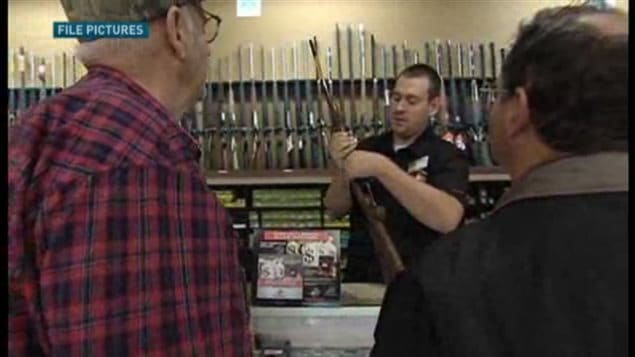Three years after the Conservative government in Ottawa scrapped the federal long-gun registry, the mainly French-speaking province of Quebec announced it would introduce its own version within the province.
The federal government at the time said the cost of two billion dollars, and growing, was wasted on a plan that was essentially ineffective in providing any additional “security”.
Legal gun owners at the time cheered the move saying they were being unfairly targeted by the law, and portrayed by a well-organized and funded anti-firearms lobby, as being some sort of threat to public peace and security.
Gino Marra is a representative of a group called “Tous contre un registre Quebecois des armes a feu” which is opposed to a provincial long-gun registry.
Listen
Long guns consist of typical hunting rifles and shotguns. These are generally considered “non-restricted”, although there are certain rules to follow with regard to such things as barrel length, while magazines for semi-auto rifles can hold no more than five bullets. Canada has had a requirement to register all handguns since 1934, and these are considered “restricted”.
There are three classes for firearms in Canada: non-restricted, restricted, and prohibited (which basically means banned). Stricter laws concerning firearms were introduced in Canada in 1995.
The stricter laws concerning firearms came about following a mass shooting in Montreal in 1989. A strong ,well-organized anti-firearms lobby group based in Quebec sprang up to demand stricter laws, among them a Liberal sponsored federal government long-gun registry (LGR).
As a result of the federal Conservative government eventually scrapping the national registry, the movement pressured the Quebec provincial government to set up its own registry.
They say tracking guns through a registry would help in control. Opponents say it was and is completely redundant as all legal owners are themselves “registered” and so in the event of police responding to a call, would know that a person is a registered owner and that firearms are likely present. An Ontario provincial court decision based on a challenge to the federal scrapping of the LGR as it was known, noted that there was no evidence the LGR increased personal security of women or anyone. A later Quebec court decided the same thing.
Another aspect is that Quebec wants to impose an additional “permanent” number on each firearm, although each and every individual firearm already has its own unique serial number. Gino Marra says this idea would require physical damage to the firearm, and destroy its value. Regular hunting firearms can be worth anywhere from hundreds to thousands of dollars, and the financial loss to collectors of rare or historic firearms would be even greater.

Opposition in Quebec by the thousands of legal firearms owners, hunters, sport shooters, and collectors, has been growing. All provincial political parties had initially supported the government plan, but that unanimity has been showing some cracks.
Legal owners, supported by provincial court judgements in Ontario and Quebec and by statistics gathered by the federal agency Statistics Canada, say the registry did not provide any additional security for the population. They point out the astronomical cost would be much better spent on providing additional psychiatric support for the population, additional police, additional border security staff etc.
A new report published in the Journal de Montreal, says the initial proposed cost for such a plan would now likely cost up to 50 percent more than the government estimates. Gun owners say even that is likely far below eventual costs.
Many owners suggest the registry is really not about safety anyway, but more about collecting additional taxes,
Gino Marra says legal firearm owners are once again being portrayed as some kind of threat by the anti-firearms lobby in the province, and they have become tired of what they consider a serious misrepresentation.
He also says that it is almost never explained to the population that in Canada, being able to own or buy firearms is a complex, time-consuming, costly and invasive process. It involves extensive police background checks, and paying for mandatory classroom courses. To buy and own restricted firearms, such as pistols or certain types of rifles, additional mandatory courses are required, along with membership in a registered gun club, are also required at substantial additional costs in money and time.
He is unsure of what the government may do, but hopes they listen to the reasoned arguments of law-abiding firearms owners, and do not proceed with what they insist is an unnecessary, wasteful and harmful plan.
addtional information-sources







For reasons beyond our control, and for an undetermined period of time, our comment section is now closed. However, our social networks remain open to your contributions.